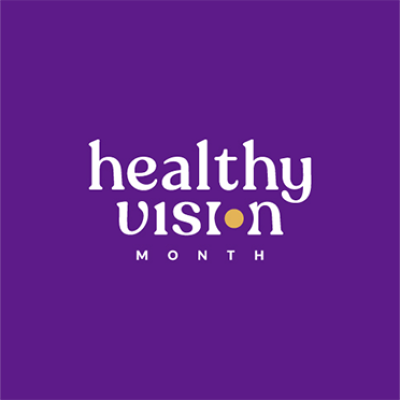Each May, Healthy Vision Month calls on us—not just as ophthalmologists, optometrists or primary care providers, but as a unified care team—to reflect on the essential role vision plays in overall quality of life. This year’s theme, “Healthy Lives, Healthy Eyes,” emphasises the connection between overall health and vision, highlighting the importance of lifestyle choices in maintaining eye health. It offers more than a message—it’s a reminder of the interconnectedness of the systems we serve.
At Queensland Eye & Retina Specialists, we see Healthy Vision Month as an opportunity to deepen our shared commitment to early detection, comprehensive care, and patient empowerment.

Why Healthy Vision Month Matters—To All of Us
Established by the National Eye Institute in 2003, Healthy Vision Month aims to elevate eye health as a public health priority. As vision problems often progress without obvious symptoms, many people are unaware they are living with preventable or manageable eye conditions—until it’s too late.
This month serves as a reminder that routine eye care is not a luxury—it’s a fundamental part of preventative medicine. As optometrists and GPs, your role in initiating these conversations is critical.

A Shared Duty in Protecting Vision
We know that eye health does not exist in isolation. Chronic conditions like diabetes, hypertension, and autoimmune diseases can significantly raise the risk of vision-threatening diseases such as diabetic retinopathy, hypertensive retinopathy, and uveitis. That’s why timely collaboration between optometrists, general practitioners, endocrinologists, internists (physicians specialising in internal organs), and ophthalmologists is so important.
Here’s how we can work together:
- Encourage regular, comprehensive eye exams—particularly for patients over 40, those with a family history of eye disease, or those with systemic conditions.
- Ensure accurate, up-to-date medical histories are communicated between care providers to help assess ocular risk factors.
- Refer early when vision complaints arise, or when chronic health conditions require multidisciplinary management.
- Engage patients in discussions about their long-term visual health, not just vision correction.
The Role of Healthcare Providers in Eye Health
As trusted healthcare professionals, we play an important role in guiding patients towards healthier lifestyles that benefit both their general wellbeing and eye health. Conditions such as diabetes and hypertension can increase the risk of eye diseases, making it essential for us to:
- Encourage Comprehensive Eye Exams: Advise patients to undergo regular dilated eye exams, which are crucial for detecting eye conditions early, often before symptoms appear.
- Promote Healthy Lifestyle Choices: Recommend a balanced diet rich in nutrients beneficial for eye health, regular physical activity, and the avoidance of smoking.
- Discuss Family Eye Health History: Understanding a patient’s family history can help assess the risk of hereditary eye conditions.
- Advocate for UV Protection: Suggest wearing sunglasses that block 99–100% of UVA and UVB rays to protect against sun-related eye damage.
Explore More Resources
For additional information and resources, visit the National Eye Institute’s Healthy Vision Month page.
At Queensland Eye & Retina Specialists, we are committed to collaborating with you to ensure the best outcomes for our shared patients. If you require assistance with referrals, patient education materials, or have questions about eye health management, please do not hesitate to contact us. Together, we can make a significant impact on our patients’ vision and overall health.